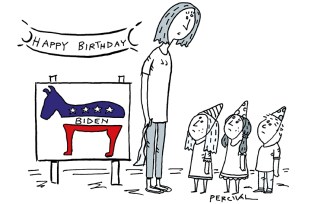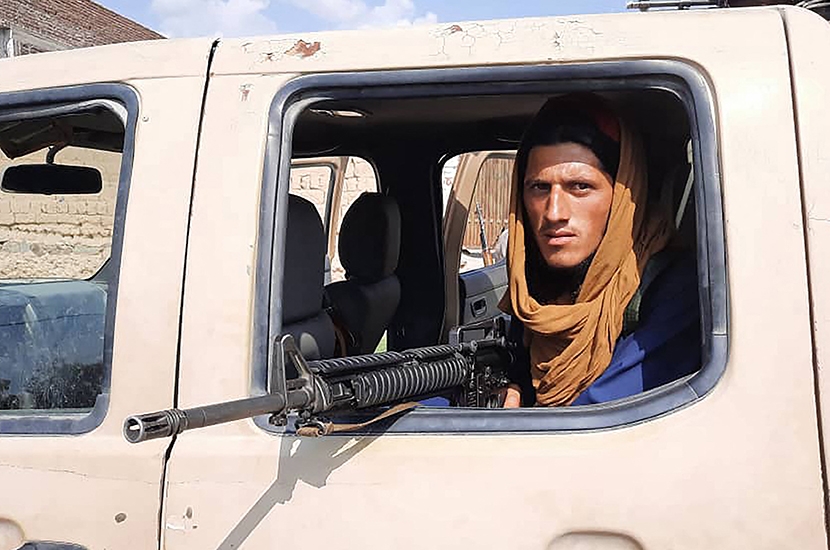Many years ago, before the Soviet withdrawal from Afghanistan in 1988, I was based in Peshawar in Pakistan, near Afghanistan. I was responsible for British diplomatic reporting on the war and engaging with Afghan leaders. I came to know the Taliban. They were, to put it mildly, not particularly nice guys: intensely parochial, geographically and politically sectarian, xenophobic, misogynistic, tribal and rigid.
As fierce Pashtuns, the biggest minority in Afghanistan, they would kill other ethnicities wantonly: Shia Hazaras in particular, as apostates, were killed. They detested Ahmad Shah Massoud, the ‘lion of Panjshir’ and a hero of the resistance to the Soviets, because he was a Tajik. Some of their fundamentalism was fuelled by the radicalised strains of Islam: Wahhab-ism and Deobandism, exports of Saudi Arabia and Dar al-Islam Howzah in India, respectively. But the Taliban mostly were doctrinally rooted in -Pashtunwali — ancient tribal custom.
Times have changed. The Taliban we see today present themselves as a more complex, multi-ethnic and sophisticated coalition — perhaps the reason they have been able to topple the western-installed Afghanistan government at such breathtaking speed. Their ranks now include a Hazara commander and even a Tajik Taliban, something that would have been unthinkable just a few years ago.

The new Taliban are canny enough to ‘talk the talk’ of Afghan political inclusion and strategically astute enough to look to Iran, Russia and China for mediation and to facilitate their place in the Great Game. They arrived in Kabul with a manifesto: that they will bring stability, not embark upon score-settling or civil war. Whether these pledges will be kept is another question, but it marks quite a contrast from the Taliban I knew.
Their lightning sweep to power has been years in the making — and shaped by many outside actors facilitating this metamorphosis: notably China, Iran, Russia and Pakistan. They have brought their Afghan allies (i.e. the other Afghan minorities, who are almost as numerous) to the negotiating table. They have been engaged in international diplomacy: a Taliban delegation has been to Iran, Russia and China in the last two months. Their links with Beijing go back several years, during which China has been active on the ground in Afghanistan in building outreach to the Taliban and to the Tajiks of the north. Iran, too, has been engaged with the Taliban in a similar vein for at least ten years.
As a result of this concerted outreach (joined by Russia and Pakistan jointly in December 2016), today’s Taliban leadership has been shaped by the realpolitik of central Asia. The Taliban’s current political leadership, many of whom have degrees in science and technology (unlike their parents), have a different world outlook. They have been helped by external foreign powers, and they have a vested interest in finding diplomatic recognition as a legitimate government.
The new Taliban are canny enough to ‘talk the talk’ of Afghan political inclusion
So the stage is set for a major evolution of Russia and China’s regional corridor plan. The situation will also transform the security of central Asia by pivoting to the concerns of China and Russia (the US, so far, has been denied an alternative military base in central Asia, relocating instead to Jordan). Taliban leaders see a diplomatic network ready for them in the form of the Shanghai Cooperation Organization: an alliance of China, Russia, Kazakhstan, Kyrgyzstan, Tajikistan and Uzbekistan, and shortly also Iran.
This group can enable the Taliban to stop being political ‘untouchables’ and rebuild Afghanistan not with western aid but with economic assistance from others in the region. We can expect China to play its part in the rebuilding. Beijing has recognised the Taliban government, and will seek to include Afghanistan in ‘five-nation’ pipeline plans which will bring Iranian oil to China via northern Afghanistan. A north-south pipeline corridor may follow, ultimately linking St Petersburg via Afghanistan to Iran’s Chabahar port.
This does not fit with the West’s view of the Taliban of being RPG-wielding savages who lack the faintest idea of how to run a national government and who can only be relied upon to start a new civil war. That inevitably is a risk; but it is not simply a question of whether the new Taliban leaders can be trusted. It’s a matter of looking at the forces (and countries) that have brought them to this point, and what they will be expecting now.
The Taliban will have been told by their new allies that if they violate their assurances and start a revenge campaign, they will regain their international pariah status. They will be classified as terrorists again. Their borders will close, their economy will tank. More significantly, these countries can hold back their Afghan allies from civil war.
It’s often said that China is purely mercantile, interested only in advancing its economic agenda, but it is more determined to shape the region than many realise. Its Xinjiang province shares a border with Afghanistan. This touches on state security, and China will require stability in Afghanistan. It will not tolerate ethnic Turkic insurgents, spurred by the West, moving from Afghanistan into Turkmenistan or Xinjiang (the Muslim Uighurs are ethnically Turkic). We can expect Beijing to be tough on this point.
So what we have seen this week is not just the triumph and transformation of the Taliban, but a seismic shift in the geopolitics of central Asia. The West has been blind-sided, in part, because too much time has been spent looking at all this through a simplistic narrative of ‘counter-terrorism’. The only hope for understanding the situation now is to move on from the old way of thinking and recognise the new dynamics at play.






Comments